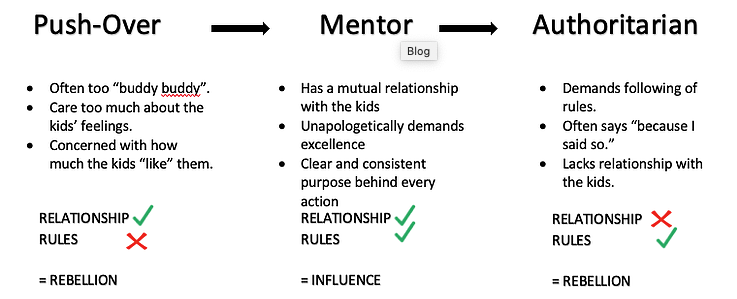“Kids these days just don’t get it…”
I am going to warn you now; this article is lengthy. Buckle up and get your notebook out, because we all need to hear what I am about to say, especially myself.
Transitioning from the collegiate sports setting to the high school setting has been eye-opening to say the least. I am learning more about this generation of high schoolers every single day. Quite frankly, my experiences are teaching me more about myself than it is about the kids. At the college level, the athletes have a built-in unified goal and are motivated by it. This is not the case with high school students, especially this day in age. The biggest challenge that high school coaches face is delivering a clear message that kids can not only understand, but WANT to apply to their lives.
Writing this article hits home for me, because I am a millennial myself. At 25 years old, I am not far removed from the very setting that I am coaching at. This is a sharp double-edged sword. Millennial athletes have a common approach towards their coaches: that they just don’t understand and never will. Being as young as I am, I have an advantage in this area. I grew up in a similar environment that the kids I am coaching are growing up in. I have the same understanding of technology and grew up with the same resources available to me in the palm of my hand. I am able to see through their lens more often than my peers. In this article, I am going to give 10 principles to live by if you want to have an impact on today’s youth.
Before we dive into the 10 Ways to Work With Millenials, I am going to preface it with a timeless principle that encompasses every tip I am going to list. When I was in college, my father handed me a book called The 7 Habits of Highly Effective People by Stephen Covey. He gave it to me and said, “Read it, then read it again.” At first I was resistant to reading this material, as it came off as another assignment or burden that did not interest me. One of the best things I ever did was pick up that book and read it with an open mind. Dr. Covey lists and breaks down 7 habits that make people highly effective. The habit that most relates to this topic is habit number 5…
Seek First to Understand, Then to Be Understood
This statement is common, but not everyone applies it. The only way to see the true effects from this principle is to put it into practice and see for yourself. The majority of our world does a poor job of listening to understand. Instead, they listen to respond. It is a trap that all of us fall into, including myself. As soon as we shift our approach to focus our efforts on someone other than ourselves, that is when you will see true impact.
This list has no particular order and are not prerequisites of each other. These are simple tips and actions that have helped me increase my overall impact with those I work with and those I work for.
TIP #1: Smile More Often
Your energy and presence will have a greater impact than your words ever will. High school kids function more off emotion and feelings rather than truth and facts. If we can portray a positive energy and presence towards them daily, they will want to be around you more. Stop complaining and smile! They are watching your every move.
TIP #2: Listen Intently
As adults, we automatically assume that we know more than the student and that the student must adhere to our authority regardless. This is the exact reason why we often LOSE authority! You will find much more success if you will shut your mouth and listen to what they are saying and find the root of why they are saying it. Once you expose the true motivation behind their words and action, you can have true impact. You HAVE to get beyond the tip of the iceberg, humble yourself, and listen.
TIP #3: Humility
As stated above, you must humble yourself before you have true impact. We as adults get stuck into a “I’m the adult, you’re the child. I know everything, you know nothing” modus operandi. This is a dangerous place to be. You will be surprised how much we can learn from the kids! But first, you must be willing to learn before that can every happen. This will create chemistry and trust in the relationship when training millennials.
TIP #4: Service
Have you ever sat down and reflected on your “why”? We are masters of justification and if we do not hold ourselves accountable, we will disguise our actions as “service” when you are actually serving yourself. This is a natural human tendency that we must keep in check. In every action, word, and step, you must truly ask yourself, “Is this decision about them or about me?” High school students will give their loyalty very quickly when they see someone truly cares about them. Do something for a kid that they are not able to give back to you in return and see what happen.
TIP #5: Discernment
This is a huge one, and it only comes with time and investment. A lot of coaches ask, “How do you know if he’s telling the truth?!” This is a common issue with coaches around the country who are leading our youth. High school kids are going to lie, they are going to be mischievous, and they are going to be inconsistent. Coaches focus on the result of the issues rather than finding the source of WHY. Most kids will apologize because they got caught, not because they knew they were wrong. We as coaches must invest in the lives of our athletes to gain the SKILL of discernment. The people with the most awareness have spent the most time in the trenches. Get to know your kids by spending time with them and having conversation with them. You will develop discernment along the way.
TIP #6: Consistency
Every kid thrives from structure. They need it to be successful. A lot of the time, high school kids are receiving 10 different lessons, 10 different sermons, and 10 different pieces of advice from 10 different people in their life. There is no way that these messages are aligned and consistent. Kids will let these messages go through one ear and out the other and do what they want anyway. If you want something to resonate with a high school kid, you must first speak it in their language and hammer the message home consistently. It will not happen overnight. We must give the minimum effective dose on a consistent basis for it to have a true impact. A kid often gets confused because of our inconsistent delivery of the same message. Consistency is key.
TIP #7: Clarity and Simplicity
Consistency is key when training millennials, as in my last point, but if we are not CLEAR with our message, it will not be received. A common saying for teachers is “If you can’t teach it to a first grader, then you don’t know it as well as you think.” Great teachers take complicated concepts and simplify them. This does not make it EASY. For example, I took AP Calculus my senior year of high school. I realized quickly that the calculus concepts were rather simple, but the proper execution of the algebra was hard. The algebra is already hard enough. If the concept was too complicated or too complex, on top of the algebra being difficult, my probability of solving the problem was very low. Thankfully, I had a great teacher that did a great job of simplifying the concept and explained each step in a simple manner. We must deliver our messages the same way! If we cannot clarify and simplify our message, the millennial will not even attempt to accept it. We must understand that simplicity and clarity does not equal easy.
TIP #8: Transparency
A common saying in pop culture today is “Keeping it 100”. This saying simply means to be honest and straightforward with the people you interact with. This tip goes hand in hand with the last two tips. The combination of clarity, simplicity, consistency, and transparency will lead to influence and effectiveness. Transparency is the act of putting all issues on the table for everyone to see and addressing them. People have a tendency of hiding the things they think will bring them down and only bringing things that will benefit them to the spotlight. This is ineffective and will keep all of us from developing and growing. This is the key concept that separates the “real” from the “fake”. The people who are the most transparent are usually the ones who have a strong “why” and purpose for their actions. Transparency is a prerequisite to growth.
TIP #9: Vulnerability
Leaders often buy in to the illusion that they have to be perfect to be effective. The quite opposite is true. Being imperfect is inevitable, but the difference between effective and ineffective leaders is how they respond when they miss the mark. Kids are told from day one that they must perform well to be successful. This creates a fear of failure and a habit to hesitate when something is difficult. We must be willing to be wrong, and learn from being wrong, if we ever want the kids we are leading to do the same. If we were always successful, we would never grow. I saw the greatest buy-in from my athletes/students when I allowed myself to be vulnerable to failure. Does this mean be satisfied with failure? Absolutely not. This means taking responsibility for the failure and not being ashamed by it. There are no such things as losses, only lessons.
TIP #10: Coach Hard, Love Harder
We sometimes misconstrue the understanding of loving and caring for a young person we are leading. Coaches are called to be mentors. Being an effective mentor is a true art form and requires a lot of discipline and constant evaluation. Coaches usually fall somewhere along the following spectrum:

At the end of the day, we must continue to evaluate ourselves before we can ever evaluate the people we are leading, whether they are “millennials” or not. As leaders of youth, we must constantly check our egos at the door and be willing to serve.
Subscribe to our blog
Subscribe to receive the latest blog posts to your inbox every week.
Related posts

The Number One Way to Know What Your Members Want

Coaching in the Age of AI: Why the Best Will Always Lead With People

